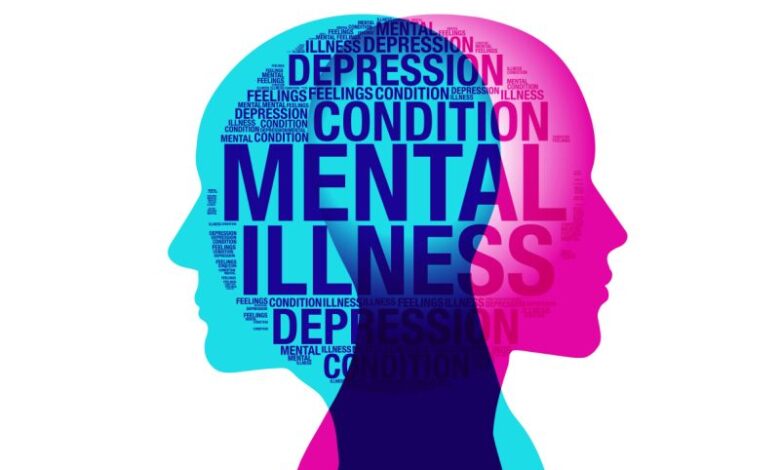Falling sick can be an easy disruption to a normal life. But persistent illness can lead to increased disturbances, which hinder our progress and slow us down. Mental Health in Chronic Illness Chronic illnesses are proportionate to this line of action, where mental health is affected to a certain level, prohibiting the individual from getting back on track in life.

Adhering to the accepted fact that a healthy body is for a healthy life, the ability to bounce back fast and accurately not only depends on the disease but on the individual suffering from it.
A common cold or flu
A common cold or flu can be easily forgotten with the help of medication within a couple of days, but a continuous persistent illness Mental Health in Chronic Illness takes time to leave our lives. For most people, accepting the basic idea of being medically (physiological or pathological) Mental Health in Chronic Illness.
Being ill for a very long time requires a life adjustment, which if executed, provides a healthy ground for strong mental health.
What Is Chronic Illness?
Any illness that persists for a span of more than a year is considered to be a chronic illness. It is the imbalance of bodily health that creates a disparity in the normal lives of individuals and those closely related to them (family and close acquaintances).

Their daily lives are constantly disrupted and redirected, to the point where their mental health shifts and settles.
Mental illness can range from generalized anxiety disorder to hysteria. Many factors contribute to the increased decline in positive mental health of chronically ill patients. Since their lives are based on heavy and continuous medications,

they unintentionally accept it as the only way of living that prohibits them from feeling positive. Adverse health conditions can easily enhance the repercussions of advancing chronic illness and vice-versa.
https://www.who.int/news-room/fact-sheets/detail/healthy-diet
The list of chronic illnesses is large, whereas the symptoms and mental health problems faced by patients remain primarily similar. Also, many pathological illnesses can cause mental problems that can be treated with drugs, but only up to a certain point.

https://www.who.int/news-room/fact-sheets/detail/healthy-diet
Diabetes:
Diabetes is a widely common pathological ailment, found in patients of every age, race, ethnicity, and gender. It does not spare anyone and persists lifelong. Although it can be monitored and taken account of to lead a normal healthy
life with multiple factors adding to its imbalance, it tends to run its own course, hence redirecting a patient’s life. This loss of direct control over life leads the patient into a feeling of dejection, which can cause mental health issues like depression and anxiety.

People who are generally more controllable of their lives and like the sense of knowing exactly what and how, with good finances and medical help, might be less prone to succumbing to the extreme depth of such an ailment, providing themselves with an ample amount of time to design a proper adjustment plan for forthcoming stages of life. For many others with financial and medical hindrances, this might not be the case.
Sudden spikes in blood sugar levels and inconsistent HbA1cs can lead to increased anxiety. Repeated incidents of changes in sugar levels,
with other medical ailments also making a show because of weak immunity, pave the way for high levels of anxiety and depression.
https://www.hcplive.com/view/mental-health-disparities-people-diabetes-across-europe
Arthritis:
The disruption in the ability to properly move joints due to extreme continuous inflammation is referred to as arthritis.There are many types of arthritis, of which the most commonly observed are osteoarthritis and rheumatoid arthritis.
Symptoms include joint pain and stiffness, which worsens with age. This type of physical ailment requires not only medications but physiotherapy and, for some patients, surgery as well.
Despite it being a very common disease, the inability to provide a cure has rendered patients mentally disturbed. The ability to perform day-to-day tasks without experiencing physically excruciating pain becomes a fantasy. Patients lose a physical and mental grip on their bodies,
pushing them towards depression. The anxiety of hurting oneself through a minimal task restrains them from doing it themselves, making them dependent on others, which increases stress and leads to depression of becoming invalid with passing time.
Depression and anxiety are the two most prevalent mental illnesses in patients suffering with diabetes and arthritis. The degree of these mental ailments might vary from individual to individual, but the charged longevity of prevailing ailments increases with overtime.
Many other chronic illnesses, like autoimmune diseases, Alzheimer’s, cancer, epilepsy, HIV/AIDS, hypothyroidism, Parkinson’s disease, etc., can cause mental ailments, which when provided with professional intervention reduce the risk of severity.
Even though there might be very slight level of differences in mental illness among patients with similar diseases, it does not mean they should not be prioritized for medical intervention. With AI and ML getting better, they can be properly diagnosed and given the right help.













